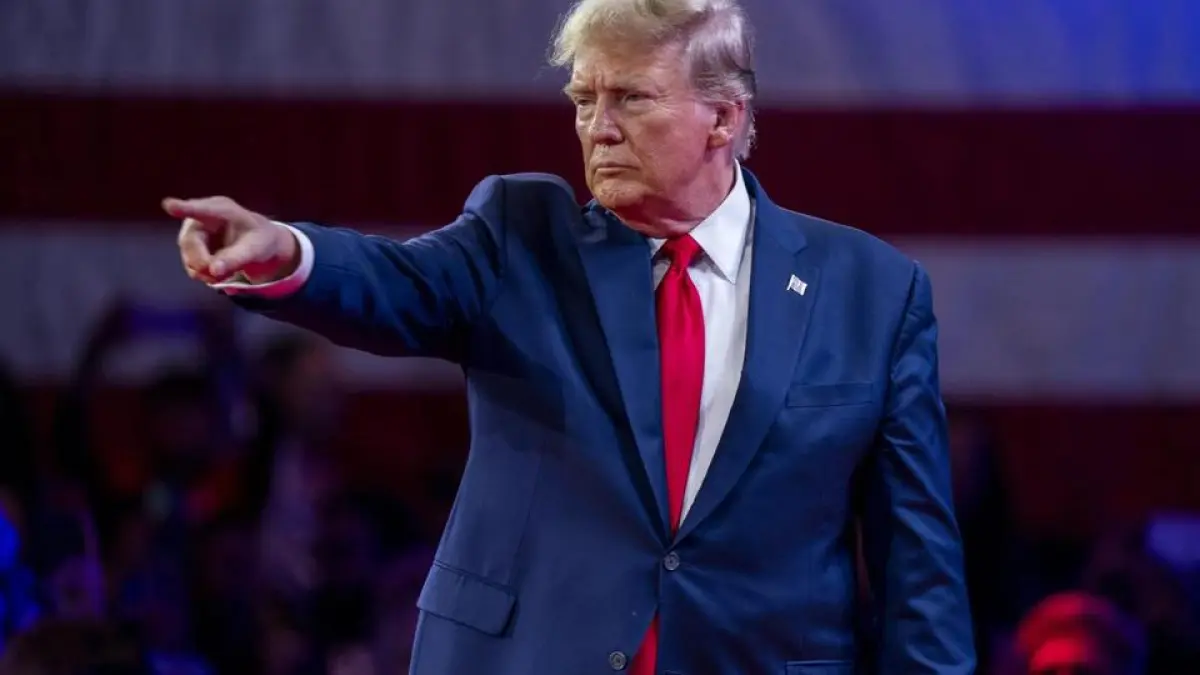Donald Trump's surprise order to resume nuclear weapons testing on Friday sparked global criticism, raising the specter of renewed tensions between world powers.
The order was announced shortly before the US president - who boasts of being a promoter of peace - began a meeting with his Chinese counterpart, Xi Jinping, on Thursday in South Korea.
The order to resume testing is a"responsible" measure, Pentagon chief Pete Hegseth argued on Friday."We need to have a credible nuclear deterrent. That is the basis of our deterrence," he stated.
The United States has not conducted nuclear weapons tests since 1992. Iran, a rival of Washington, strongly criticized Trump's announcement on Friday, calling it an"irresponsible" move and "a threat to international peace and security." Iranian Foreign Minister Abbas Araqchi referred to Trump as "a thug armed with nuclear weapons" who "has demonized Iran's peaceful nuclear program."
Similarly, the Japanese group Nihon Hidankyo—formed by survivors of the atomic bombings of Hiroshima and Nagasaki—criticized Trump on Friday for the announcement, warning that it"directly contradicts the efforts of nations around the world seeking a peaceful world without nuclear weapons, and is totally unacceptable."
Trump ordered the Department of Defense to resume nuclear weapons testing following Vladimir Putin's announcements about the development of new Russian atomic capabilities."Because of other countries' testing programs, I have instructed the War Department to begin testing our nuclear weapons on a level playing field," Trump wrote on his Truth Social platform.

US Vice President JD Vance declared on Thursday that his country needs to conduct these nuclear tests to ensure that its arsenal "functions properly."
Trump claimed that the United States possesses more nuclear weapons than any other country, and praised his own efforts to carry out"a complete modernization and renewal of existing weapons." He added that Russia and China are behind the United States in nuclear weapons.

China critical essays
Trump did not specify the nature of the announced tests, that is, whether they will be tests of nuclear warheads or of systems capable of carrying an atomic payload.
In any case, Washington has been a signatory to the Comprehensive Nuclear-Test-Ban Treaty since 1996, so any warhead test would constitute a flagrant violation of the agreement. These statements come in response to a series of recent announcements by Putin, who on Sunday celebrated the success of the final test of the Burevestnik cruise missile, which, according to him, has"unlimited range" and is capable of evading virtually all defense systems.
The Russian president announced on Wednesday the successful test of an underwater drone named Poseidon, capable of carrying nuclear warheads."No other device in the world is like this one in terms of speed and operating depth," he asserted. Following Trump's statements, Moscow clarified that these were tests of weapons capable of carrying a nuclear warhead, not nuclear bombs themselves.
Shortly before, China had urged the United States to"seriously" respect the ban on nuclear testing and to take "concrete measures to preserve the global system of nuclear disarmament and non-proliferation."
A spokesperson for the UN Secretary-General called for no nuclear tests to be carried out "under any circumstances." "All actions that could lead to miscalculations or an escalation with catastrophic consequences must be avoided," the spokesperson added.
The United States and Russia remain bound, in principle, by the New START disarmament treaty, which limits each party to 1,550 deployed strategic offensive warheads and provides for a verification mechanism, suspended for the past two years. The treaty expires in February. Moscow has proposed a one-year extension, though without mentioning a possible resumption of stockpile inspections.

